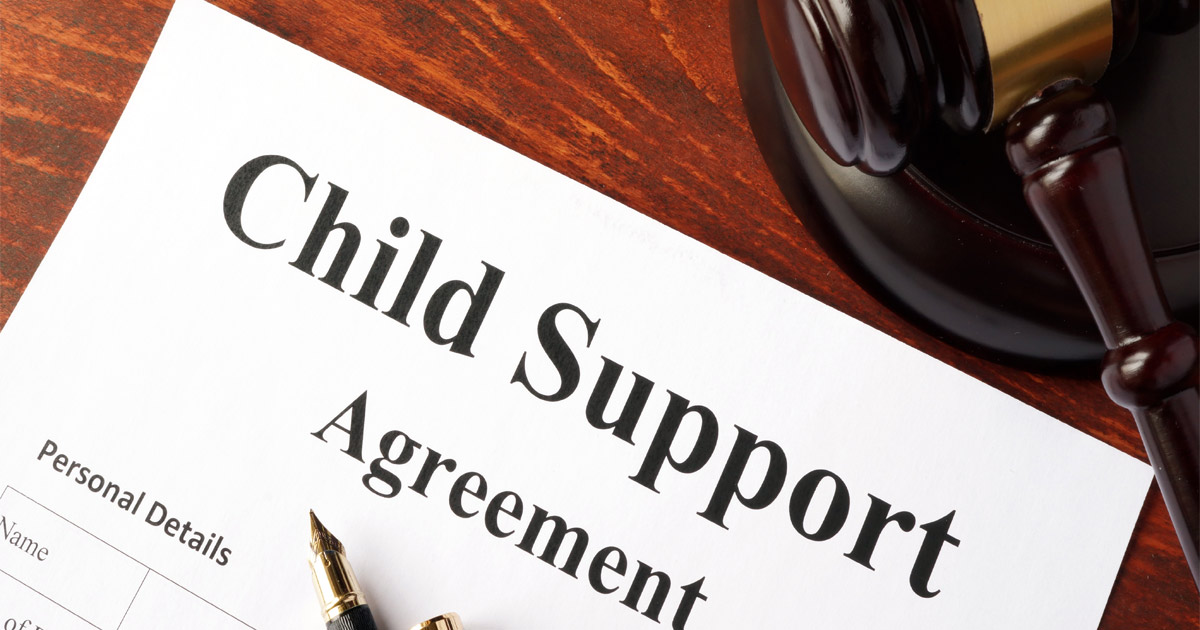How Is Child Support Calculated?

When a divorce involves children, one of the issues that courts must decide on is how the costs of caring for the children will be distributed. States vary in how marital assets are divided and in how child support payments are determined. In New Jersey, the courts have set up extensive guidelines for how to determine the amount of child support that must be paid.
How Is Child Support Calculated?
Child support is a payment made to cover costs of rearing children of a dissolved marriage. In New Jersey, both parents are considered financially responsible for the care of their children both during the marriage and after its dissolution. The courts look to assign a relative share contribution toward expenses based on their income. For parents with equal incomes, each will be expected to assume equal share of household and related child care expenditures.
Courts use the parents’ combined net incomes when evaluating how to apportion child custody costs. The net income is derived by deducting payments, such as taxes, alimony, child support, and union dues from gross income, which is essentially all earned and unearned income that recurs or raises the individual’s income over time. Gross income includes regular compensation, tips, bonuses, profits from business ventures, sale of property, sale of investments, earnings from investments, interest, and dividends. Gross income can also include benefits, such as income from Social Security. Another potential source of gross income is severance pay.
In most cases, the calculations add up all the gross income, determine net income, and then itemize how much support is awarded as a base rate depending on the number of children. This applies to those with a combined net income of $187,200 per year. The courts have developed Child Support Guidelines for these cases.
What Are the Child Support Guidelines?
The Guidelines include worksheets to perform calculations and specify various itemized child care costs in broad categories, including net work-related child care, child’s share of health insurance premium, unreimbursed health care expenses, and court-approved extraordinary expenses.
In rare instances, a court may deviate from the Guidelines. If so, the court must explain the reasoning. Generally, the allocation to each parent of support costs is made in proportion to the parent’s incomes.
New Jersey is unusual in that it sometimes imposes an obligation on both parents to contribute to their children’s college and other higher education courses of study. This adds a new element to the calculation and involves extensive analysis, beginning with whether the parent would have contributed to the costs of the requested higher education if they were still married, as well as the background and goals of the parents. If both parents happen to have advanced degrees, courts could even consider mandating child support payments that address the child obtaining an advanced degree; however, this is rare.
Courts Take a Different Approach for High Earners
The courts take a different approach to those with a yearly net combined income greater than $301,000 annually. In these cases, courts review what are called statutory factors. These include:
- The standard of living and economic circumstances of each parent.
- All sources of income, assets, and earning ability of each parent.
- The age and health of each parent and child.
- The reasonable debts of each parent.
These are viewed through the lens of the child’s needs in general based on their age and health as well as their need and capacity for further education, including higher education. Courts also consider the amount of alimony and other payments made in relation to dissolution of the marriage.
What Factors Impact Child Support?
Since both parents are expected to contribute to paying for the care of the child, the courts examine the income each parent earns and the amount of time the child will spend with each parent. In a divorce proceeding, one parent is designated as the custodial parent who has physical custody. This means the child resides there either full-time or most of the time. The other parent is considered non-custodial and is usually awarded a certain amount of parenting time.
The most common factors considered when determining child support include:
- Number of children.
- Age of the children.
- Number of overnights each child has with each parent.
- Amount of income of each parent.
- Amount of alimony.
- Cost of medical insurance and which parent is paying.
It is also possible for certain predictable recurring expenses to be taken into consideration. Examples include work-related child care, additional unreimbursed health care, shared parenting transportation, and other special needs. Unusual expenses require court approval.
The costs of the custodial parent are expected to be greater than those of the non-custodial parent since they will be carrying the majority of day-to-day living expenses associated with child care, such as housing, food, and clothing. Courts will divide up child support obligations, considering differences in time spent with each parent.
When Does Child Support End?
Child support is paid until a child is emancipated. This determination can be quite complicated and is fact-sensitive. Emancipation is a legal term meaning the time when the child has moved beyond the “sphere of influence” of their parents. This can be established in a variety of ways, including marriage, enlistment into military service, and reaching the age of maturity, provided that the child is not disabled.
What Happens if Child Support Is Not Paid?
Sometimes, a parent fails to pay court ordered child support payments. When this happens, the parent who is not being paid must seek enforcement in the courts. If their case is successful, various methods may be employed to seek payment, including wage garnishments, arrest warrants, loss of driver’s license, and loss of tax refunds.
Is it Possible to Modify Child Support Payments?
Modifications to child support are possible. The parent seeking modification must show that there is a significant change that warrants a modification. Sometimes, a parent or child get sick or one parent’s financial earning capacity changes dramatically. Changes can be made either through mutual agreement between the parents to change the original amount of child support.
Alternatively, a court order can change it as well. A modification will not be granted if the changes are only temporary or if they are prospective and have not yet happened.
Marlton Child Support Lawyers at Goldstein & Mignogna, P.A. Can Help You With Child Support Matters
Going through a divorce when children are involved can be difficult. There are many considerations, and making mistakes in the evaluation of the financial situation of the parties can have lasting impacts. Our experienced Marlton child support lawyers at Goldstein & Mignogna, P.A. have helped many clients going through a divorce, and we can provide assistance. Call us at 856-890-9400 or complete our online form to schedule an initial consultation. Located in Marlton, New Jersey, we serve clients throughout South Jersey, including Burlington County, Camden County, and Gloucester County.


